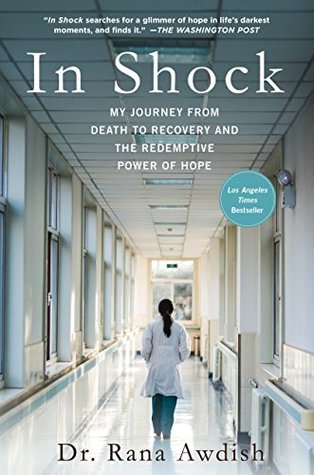More on this book
Community
Kindle Notes & Highlights
by
Rana Awdish
Started reading
October 17, 2025
I would experience an illness—followed by a long, painful recovery—that took me apart, piece by piece, and put me back together in a conformation so different I questioned if I still existed at all.
I recalled in medical school hearing a description of how the digestive enzymes of the pancreas, if unleashed, could erode through the internal organs like battery acid, destroying any architecture within the body.
The traits we revile in others are often the ones that remind us most of our worst selves. And we react most strongly to the faults and flaws we see in others that we are most ashamed of in ourselves.
To speak I had to time my breath so that it passed through my vocal cords during an exhalation.
The odd thing about being completely terrified is that it cannot be maintained as a constant state.
I divested from any outcome. I stopped believing worry could change anything. I learned to wait and see. More often than not, the following day brought with it some small but tangible measure of improvement.
I’ve found that it is sometimes easier to inhabit a space when not faced with the additional challenge of actually having to be there. I had fantasized for so long about going home, it had come to represent success to me. Instead, being in such a familiar space only seemed to accentuate every loss.
I was praying for a doorway back into the life I wanted.
What use is logic, science or facts if we were going to invoke the supernatural?
Hope was not, as I had believed, an unrealistic, unfettered optimistic emotion. Hope was an orientation, a way of being in the face of a reality that was not of their choosing. Hope was a destination they had arrived at when the situation had been wrestled to the ground and stared at, bravely.
The patients were placeholders, positions in space where the diseases would land.
The problem with responding to emotion with data is that emotion doesn’t recognize it. Ironically, I was making the same mistake with myself that physicians make with their patients. I was not naming or tending to my own emotion.
Emotion shuts down the rational, cognitive portion of our brains. Anyone who has attempted to reason with an angry spouse or use logic to get a toddler over a tantrum understands this on a visceral level. Emotion demands to be acknowledged and appeased before it will disengage its controlling grip on the higher centers of cognition.
The part of the brain that drives our behavior and is responsible for a majority of our choices does not even possess language.
Physicians often enter the lives of patients on their absolute worst days. They meet without the benefit of social graces. Patients appear depersonalized in generic hospital uniforms. They lack means to project their identity through dress or choice of hairstyle. They lack ability to control their circumstances. They might be in pain, scared and suffering. They might be angry, frustrated and disenfranchised. They might be worried about bills at home or who will feed the dog. They might be addicts. They might have made terrible choices. They might be easy to judge. They might not have the
...more


